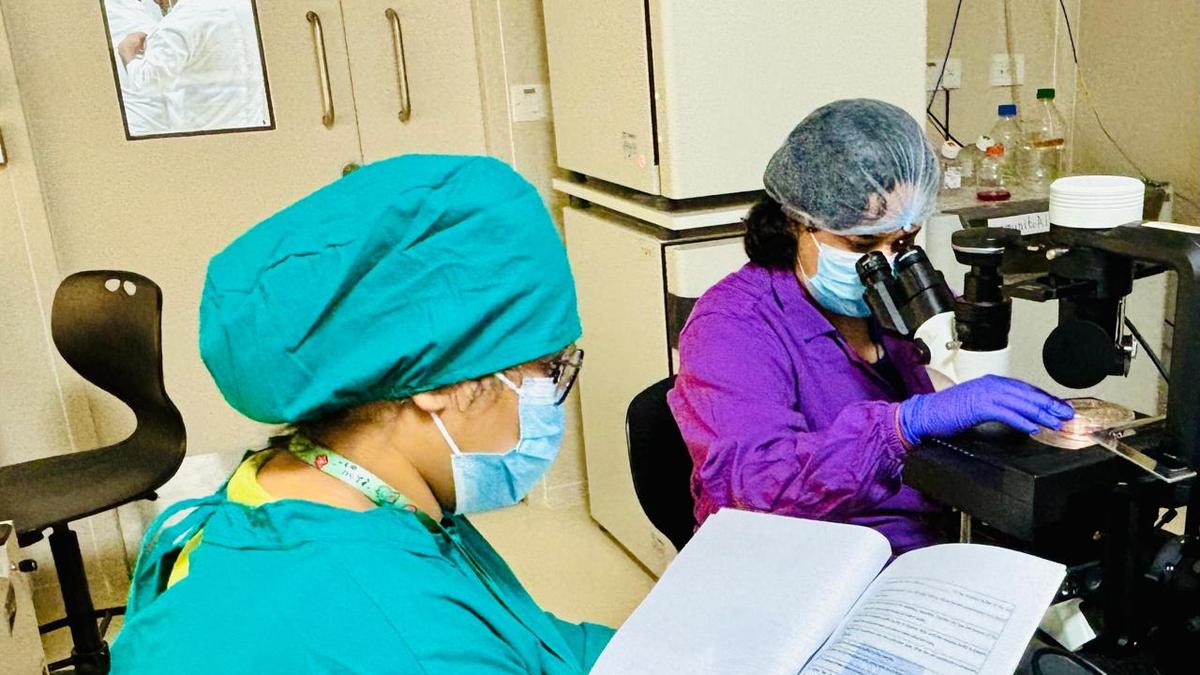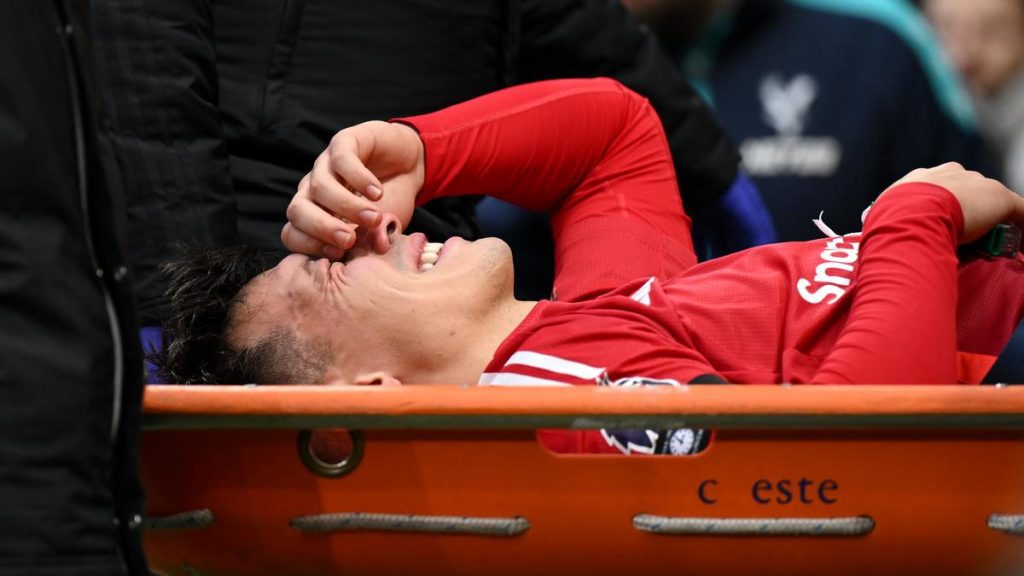Bengaluru start-up hopes to make immunotherapy for cancer more affordable, off-the-shelf Premium


Bengaluru start-up hopes to make immunotherapy for cancer more affordable, off-the-shelf Premium
The number of cancer cases being diagnosed in India every year is a whopping 14 lakh. Immunotherapy research and treatment in the country has come a long way, making it an effective treatment for certain types of cancer. However, the prohibitively high costs associated with it have made the treatment inaccessible for a large population.
NKure Therapeutics, a Bengaluru-based cell and gene therapy start-up, is trying to address this problem by working on immunotherapy solutions that they say could potentially provide off-the-shelf affordable alternatives in cancer care.
A relatively nascent field of cancer research, it was only as recently as 2020 when the Indian government approved the first immunotherapy drug in India. Immunotherapies like CAR-T cell therapy, where T cells (a type of white blood cell or immune cell that helps the immune system) are used to fight cancer, have seen advancements, but pose certain challenges in terms of side effects as well as affordability.
NKure attempts to address this by using a different set of immune cells knows as Natural Killer cells or NK cells.
“In CAR-T therapy, right now, blood is taken from a patient, the T cells are genetically modified and this is then given back to the patient. This is used for specific lymphomas and the whole process takes 8 to 10 days,” explains Lalit Pai, CEO at NKure.
However, given the treatment is specifically engineered for one person, the cost shoots up to about ₹1 crore.
“While the efficacy is very good, given the high costs associated with it, it cannot become mainstream. We need to go down a different pathway to get more affordability in immunotherapy,” says Pai. “The hypothesis that we are working on is to get affordable immunotherapy to India.”
Instead of taking the blood from a patient, the NKure team explores the possibility of extracting it from healthy donors. Each person could donate for around 100 patients, helping to make the solution off-the-shelf and significantly bringing down the costs to around ₹ 10-15 lakhs, say the people behind the initiative.
If the first part of the research is about affordability, the second is about efficacy of the solution. This depends on correctly identifying the type of immune cell to be used from the extracted blood and the kind of genetic modification to do on it.
“We have focused on NK cells. They are of a smaller proportion — typically 5-15% of the white blood cells, whereas T cells are around 70%. So obviously everyone first looked at T cells, but now people are looking at the other subgroups,” Pai notes.
But why NK cells? “NK is a much more active cell. It has a way of identifying body-versus-non-body and self-versus-non-self, and it destroys the non-self. So, it doesn’t really require targeting,” he explains.
One challenge is the difficulty in culturing these cells outside the body. But the team now has a patent for the technology they have developed for doing this. Using this tech, one NK cell can grow 600 to 1,000 times over a 15-day period, according to Pai.
These cells can then be cryopreserved and thawed when needed without loss of functionality, he says.
While developing genetically modified NK cells from healthy doses helps to make the treatment more affordable and off the shelf, Pai admits that there are certain flipsides to it. A major one is rejection of the cells by the patient’s body.
“If you are giving back a patient’s blood cells to the same body, you don’t expect too much rejection. But when you are giving the blood cells of a healthy person, it could be perceived as foreign by the patient’s body. You need to see how the body reacts to it, whether the cells are creating any safety issues and so on.”
That said, Renjitha Gopurrapilly, Chief Scientist at NKure, points out that the side effects like a Cytokine storm (asevere immune reaction in which the body releases too many cytokines – a type of protein – into the blood abruptly) that one may face during the administration of T-cells into the body do not happen with NK cells and hence it’s a “safer therapy.”
While there are no marketed NK cell therapies by which one could determine the efficiency of the treatment, studies so far point in that direction, says Gopurrapilli.
“It is shown to be as effective (as CAR-T cell therapy). There’s no marketed NK cell therapy anywhere in the world yet. Phase-2 trials have been going on in some places. But there are multiple institutes in the U.S. for example who have conducted credible studies showing the effectiveness of the therapy,” she notes.
While the NKure team’s current research focuses on developing NK cell therapies that can fight lymphoma, they also have an in-licensed technology to fight colon cancer. The rights for the latter have been purchased from a Taiwanese firm.
Gopurrapilly explains the difference between the two.
“In the in-licensed product, we take the patient’s own blood, develop NK cells from it and put it back into the patient every two weeks or three weeks. When it comes to our own product, we are trying to make an allogenic off-the shelf product from healthy dose and engineer it to put it in the CAR for targeting mechanism.”
Chimeric Antigen Receptor or CAR helps the immune cells – be it NK cells or T cells – to target the cancer cell surfaces.
“Our aspiration is to get approval for the phase-two study of the in-licensed technology, which, in two years’ time we hope to take to market. And for our own product, we hope to get approval for phase-one study,” says Pai.
Founded by regenerative medicine expert Mahendra Rao about two years ago, NKure has tall ambitions and hopes to bring down the cost of immunotherapy to one tenth of what is in the market currently. They believe that with the advancement of technology the price will further reduce.
“We also need to scale up without compromising on the function. We don’t want to keep on growing NK cells forever or bring it to a number where the cytotoxicity or the functionality is compromised. The ideal expectation would be to develop the least number of cells in in-vitro condition that would efficiently eradicate the tumour. That’s what we have been working on,” Gopurrapilly notes.
Would that pose a challenge to the ambitions of introducing it as an off-the-shelf product?
“It’s a question of logistics and how we scale the product,” answers Pai.
“The manufacturing will be centralised. It will take 15 days to make the product from a healthy dose and then we can cryopreserve it. This way, we can build a stock at a central place and distribute it when required. We’ll have to do some demand forecasting for various centres and keep stock accordingly.”
According to him, existing CAR-T cell therapy takes about two weeks of hospitalisation which adds to the expenses. NKure, on the other hand, aims to offer its NK-cell therapy as a daycare procedure involving an IV of about four hours.
With more studies pointing to the ability of genetically modified NK cells to treat even other serious conditions such as Parkinson’s disease, the team plans to venture into such areas after the completion of the ongoing research.
“The hope is that, with the skill sets that we are building, we will be able to apply this to other cells and for other genetic modifications,” Pai notes.










